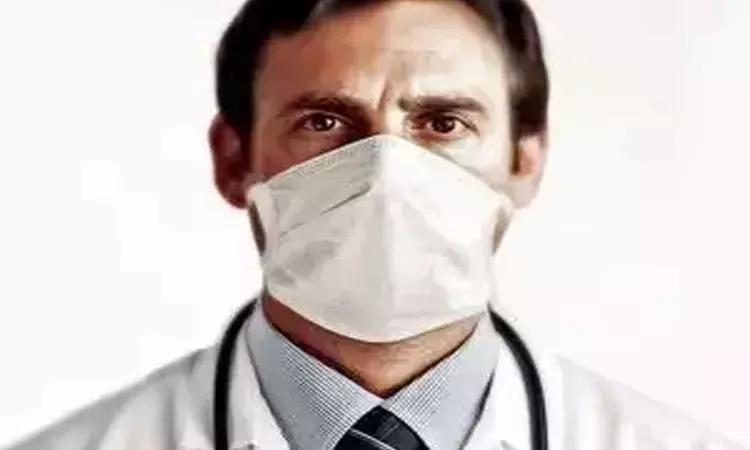- Home
- Medical news & Guidelines
- Anesthesiology
- Cardiology and CTVS
- Critical Care
- Dentistry
- Dermatology
- Diabetes and Endocrinology
- ENT
- Gastroenterology
- Medicine
- Nephrology
- Neurology
- Obstretics-Gynaecology
- Oncology
- Ophthalmology
- Orthopaedics
- Pediatrics-Neonatology
- Psychiatry
- Pulmonology
- Radiology
- Surgery
- Urology
- Laboratory Medicine
- Diet
- Nursing
- Paramedical
- Physiotherapy
- Health news
- Fact Check
- Bone Health Fact Check
- Brain Health Fact Check
- Cancer Related Fact Check
- Child Care Fact Check
- Dental and oral health fact check
- Diabetes and metabolic health fact check
- Diet and Nutrition Fact Check
- Eye and ENT Care Fact Check
- Fitness fact check
- Gut health fact check
- Heart health fact check
- Kidney health fact check
- Medical education fact check
- Men's health fact check
- Respiratory fact check
- Skin and hair care fact check
- Vaccine and Immunization fact check
- Women's health fact check
- AYUSH
- State News
- Andaman and Nicobar Islands
- Andhra Pradesh
- Arunachal Pradesh
- Assam
- Bihar
- Chandigarh
- Chattisgarh
- Dadra and Nagar Haveli
- Daman and Diu
- Delhi
- Goa
- Gujarat
- Haryana
- Himachal Pradesh
- Jammu & Kashmir
- Jharkhand
- Karnataka
- Kerala
- Ladakh
- Lakshadweep
- Madhya Pradesh
- Maharashtra
- Manipur
- Meghalaya
- Mizoram
- Nagaland
- Odisha
- Puducherry
- Punjab
- Rajasthan
- Sikkim
- Tamil Nadu
- Telangana
- Tripura
- Uttar Pradesh
- Uttrakhand
- West Bengal
- Medical Education
- Industry
WHO recommends wider use of face masks to curb COVID-19

"That means, for example, when a doctor is doing a ward round on the cardiology or palliative care units where there are no confirmed COVID-19 patients, they should still wear a medical mask," WHO Director-General Tedros Adhanom Ghebreyesus said at a virtual press conference.
Geneva: The World Health Organization (WHO) on Friday updated its guidance on the use of masks for control of COVID-19, advising all people aged 60 years or over, or those with underlying conditions, to wear a medical mask in situations where physical distancing is not possible.
The new guidance advises medical masks for all people working in clinical areas of a health facility in areas with widespread transmission, not only workers dealing with COVID-19 patients, Xinhua reported.
"That means, for example, when a doctor is doing a ward round on the cardiology or palliative care units where there are no confirmed COVID-19 patients, they should still wear a medical mask," WHO Director-General Tedros Adhanom Ghebreyesus said at a virtual press conference.
The new guidance also updated the WHO's advice on the use of masks by the general public in areas with community transmission.
"In light of evolving evidence, WHO advises that governments should encourage the general public to wear masks where there is widespread transmission and physical distancing is difficult," Tedros said while introducing the new guidance.
Based on new research, the WHO also advises that fabric masks should consist of at least three layers of different materials.
However, the UN health body warns that masks are not a replacement for physical distancing, hand hygiene and other public health measures, and they are only of benefit as part of a comprehensive approach in the fight against COVID-19.
"The cornerstone of the response in every country must be to find, isolate, test and care for every case, and to trace and quarantine every contact," Tedros stressed.
Medical Dialogues Bureau consists of a team of passionate medical/scientific writers, led by doctors and healthcare researchers. Our team efforts to bring you updated and timely news about the important happenings of the medical and healthcare sector. Our editorial team can be reached at editorial@medicaldialogues.in.


